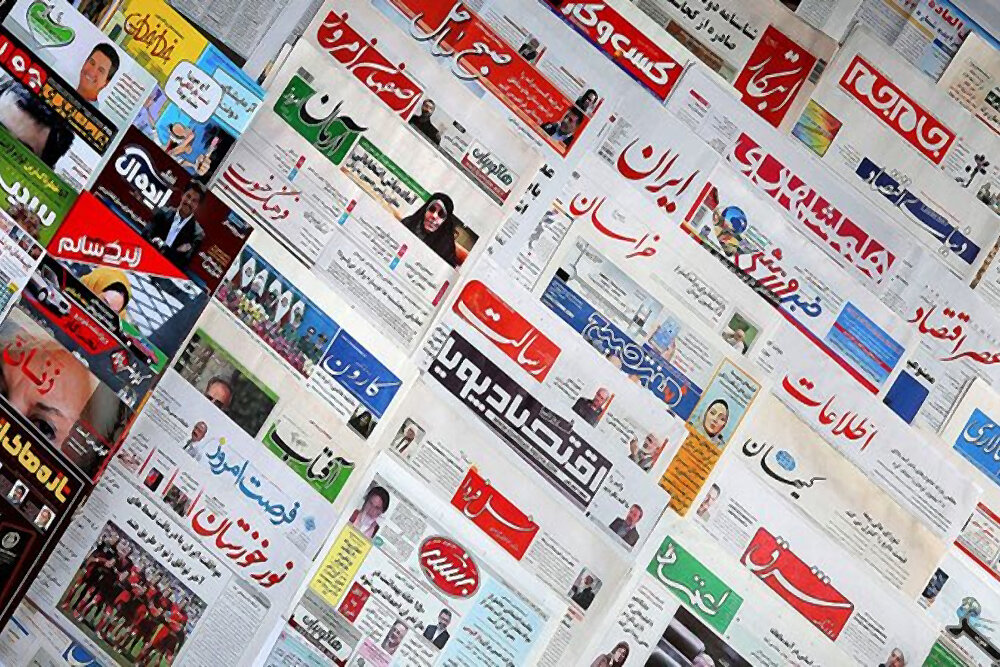Pressure conferences

On Saturday, the Munich Security Conference hosted some Iranian dissident elements, the Sharq newspaper writes.
As the conference was held without the presence of Iran, another meeting was held in Oslo, the capital of Norway, on the subject of human rights, where the Iranian opposition also participated. The meeting at Georgetown University and the invitation of the Iranian opposition to the Davos conference all send an important message.
At the Munich meeting, in addition to the presence of the opposition, other speakers, from Zelensky to Rishi Sunak, criticized and attacked Iran's policies.
On Thursday in Riyadh, before the start of the Munich conference, the United States and the Persian Gulf Cooperation Council, in a statement accused Iran of leading "destabilizing policies," "supporting terrorism," "weapons proliferation...in the region and around the world," and "nuclear provocations."
The Munich conference and other meetings that involve the opposition could lead to “diplomatic legitimacy” of opposition figures. Therefore, Iran should focus on a smart foreign policy instead of harsh words to change the course in its favor.
Arman Melli: Munich conference and Iran's challenges
Arman Melli writes: Countries usually attend the Munich Security Conference to exchange views on security issues. When Iran and Russia are not invited, it is not a very good message. It is unusual.
Worse than not inviting Iran is inviting Iran's opposition. In fact, by inviting the opposition, the organizers of the conference symbolically want to send the message that they believe what the opposition says.
When Iran is present there, it raises its own security concerns and responds to the security concerns of others. But they have given the platform to Iran's opponents to introduce Iran as a country, that along with Russia, is harming global security.
On the other hand, the main topics of the conference were the war in Ukraine, i.e. European security or global security, in which they were talking about Iran's drones, but Iran has not been given the right to defend itself against the accusations. Iran is now seen alongside Russia and the damage they want to inflict on Russia will also be inflicted on Iran.
Etemad: Failure to revive JCPOA imposes highest cost on Iran
Failure to revive the nuclear deal, which is a blow to the country's interests, is due to the particular view toward foreign policy by certain political groups, Etemad writes.
During the Trump era, the policy was not to negotiate with the United States. But with the change of government in Washington, it was essential to use this opportunity and Iran and America negotiate with each other to revive the nuclear agreement.
Referring to the challenges of the Rouhani government in revitalizing the JCPOA, Etemad says: The revival of the JCPOA should have been agreed upon by all groups [political factions in Iran], but this did not happen and despite reaching a critical point, it failed. With the change of the government in Iran, not only no agreement was reached but under the influence of other factors, dialogue to resurrect the JCPOA was set aside.
Under the sanctions, neither cooperation with neighbors nor with countries such as China can resolve economic problems.
However, considering the war in Ukraine today, the possibility of dialogue to revive the JCPOA will prove costly for Europe and Biden in view of public opinion and election contests.
Aftab Yazd: China is not looking for conflict with U.S.
China buys Iran's oil with the U.S. green light and that is why China is not looking for a confrontation with the U.S. to protect Iran, Aftab Yazd writes.
The newspaper quotes political analyst Sasan Karimi who says: The fact that the West seeks to “contain” China should not be interpreted as a Cold War. China is an economic competitor for the West. As a result, Iran must understand the international order. In no way should we consider the international order as a kind of Cold War.
On the Iran-China 25-year partnership agreement, Karimi also says: The fact is that without the lifting of sanctions, Iran will not be able to benefit from the economic, financial, industrial, and commercial benefits of the agreement.
The analyst adds the move by Arab countries to establish close ties with China is in line with their correct understanding of international developments.
China is looking for stability in the Middle East. The Arabs also do not consider their close relations with the West as an obstacle to their cooperation with Beijing and China’s investment in their own countries and this is something that both China and the West have understood.
Kayhan: Contradictions of pro-Western circles about ties with China
When the 25-year cooperation document was signed between Iran and China, pro-Western circles considered it a blow to the country's independence.
But after one or two years, they are nagging that why the agreement has not been implemented, so it is worthless!
At the same time, pro-West individuals say that Saudi Arabia is "ahead" of Iran in oil sales and economic partnership with China, but they did not say that Saudi Arabia has become a colony of China as used to say about Iran.
These contradictions are that China is the largest trading partner of the U.S. and some European countries. And China has been Iran's largest trading partner in export and the second largest partner in import.
